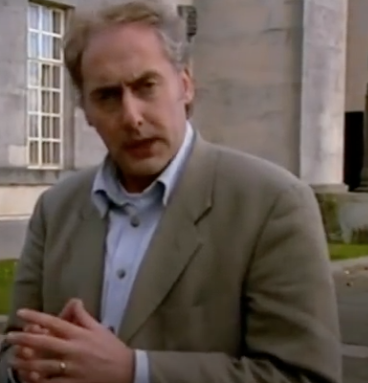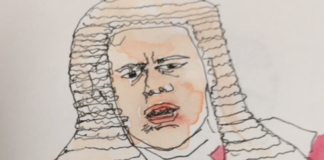- Legal eagle - 19th February 2026
- Round Robin - 19th February 2026
- Dark speak easy part one - 18th February 2026

The use of correct place names has always been vital for our Editor, Welshman Phil Parry, in his 40 year journalistic career. But what is ‘correct’? Here he examines how the whole area is a minefield, particularly in Wales.
Earlier he described how he was assisted in breaking into the South Wales Echo office car when he was a cub reporter, recalled his early career as a journalist, the importance of experience in the job, and made clear that the ‘calls’ to emergency services as well as court cases are central to any media operation.
He has also explored how poorly paid most journalism is when trainee reporters had to live in squalid flats, the vital role of expenses, and about one of his most important stories on the now-scrapped 53 year-old BBC Wales TV Current Affairs series, Week In Week Out (WIWO), which won an award even after it was axed, long after his career really took off.
 Phil has explained too how crucial it is actually to speak to people, the virtue of speed as well as accuracy, why knowledge of ‘history’ is vital, how certain material was removed from TV Current Affairs programmes when secret cameras had to be used, and some of those he has interviewed.
Phil has explained too how crucial it is actually to speak to people, the virtue of speed as well as accuracy, why knowledge of ‘history’ is vital, how certain material was removed from TV Current Affairs programmes when secret cameras had to be used, and some of those he has interviewed.
He has disclosed as well why investigative journalism is needed now more than ever although others have different opinions, how the coronavirus (Covid-19) lockdown played havoc with media schedules, and the importance of the hugely lower average age of some political leaders compared with when he started reporting.
When it comes to place names – what is right, and what is wrong?

Can guidance be drawn from the fact that most people who live there, or nearby, know it by a certain name, or does that mean it is an imposition by a ‘culturally oppressive’ power? Can history teach us anything? How far back do we have to go?
The whole area is a minefield, but for a journalist it is important to find a way of saying the place correctly. In Wales it is a particular issue.
I could show countless examples, but I will give just one because as a native of the town, it is particularly close to my heart.
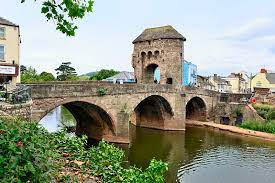
Monmouth is known in Welsh as Trefynwy (the town on the Monnow), however it is an ENGLISH town, and there are few Welsh speakers there.
Even the ORDER in which these names are given is controversial.
Should the Welsh, or the English come first?!
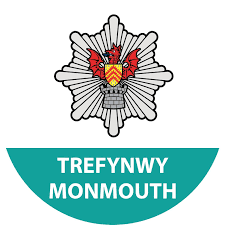

Monmouth (or Trefynwy) IS of course part of Wales (now), so it can be persuasively argued that it should have a WELSH name.
Or is it better for English-speakers to say ‘Monmouth’, but Welsh-speakers to say ‘Trefynwy’?
Who knows?!
Perhaps history can be a guide.
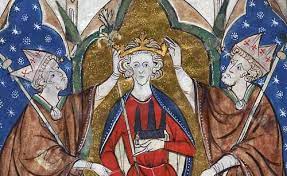
For example, in the 13th century Henry III controversially imported a load of ‘foreigners’ to take up key posts.
He named one of his wife’s uncles, Boniface of Savoy, to be Archbishop of Canterbury even though he’d never met him, and a grand palace was built on the Strand in London, by Peter of Savoy.
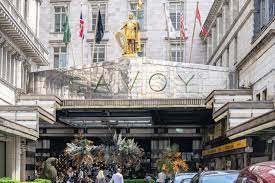
The ‘Savoy Hotel’ now stands there.
The problem is that if you look into the history of Monmouth (or Trefynwy), the ENGLISHNESS of the place is confirmed (it is mentioned in Shakespeare) and that is no help at all really.
In a similar vein – a feature in a travel guide to Wales is headlined: “A Collection of Unpronounceable Welsh Town Names”. It declares: “We’ll start with the little village of Bwlchgwyn, a little bit northeast of Wrexham. Pronounced ‘Bull-ch-gwin’, the name means ‘White Pass’ but the original is believed to have been ‘Windy Pass’”.
![]()
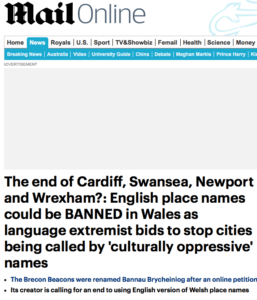 But presumably they are only ‘unpronounceable’ if you happen to be English!
But presumably they are only ‘unpronounceable’ if you happen to be English!
The MailOnline (it had to be, didn’t it?) was outraged, and screamed: “All English place names could be erased from Wales under a campaign launched by a language extremist.
“Emboldened by the controversial renaming of beauty spots Snowdonia and the Brecon Beacons, branded ‘bonkers’ by critics, language purists now claim the continuing use of non-Welsh place names and spellings highlights the ‘cultural oppression historically inflicted on Wales’.
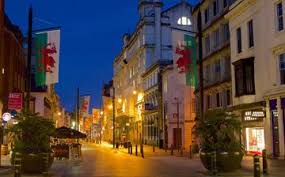
“Their radical proposal would see the names of the nation’s biggest cities outlawed, including Cardiff, Swansea, Newport and Wrexham.
“Instead Cardiff would be officially known just as Caerdydd, Swansea as Abertawe, Newport as Casnewydd and Wrexham as Wrecsam – with all English signs banned”.
As this piece alludes to, the fuss provoked by the re-naming of ‘Snowdon’ to ‘Eryri’, and ‘The Brecon Beacons’ to ‘Bannau Brycheiniog’ may underline it all.
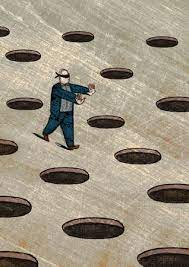
The latter names are the original Welsh ones, and what Welsh-speakers know them as. On the other hand, the former ones are what most people call them.
So I repeat – IT IS A MINEFIELD!
For reporters perhaps more than for anyone…
The memories of Phil’s decades long award-winning career in journalism (when it was important to give the correct names) as he was gripped by the rare neurological disease Hereditary Spastic Paraplegia (HSP), have been released in a major book ‘A GOOD STORY’. Order it now!
Publication of another book, however, was refused, because it was to have included names.
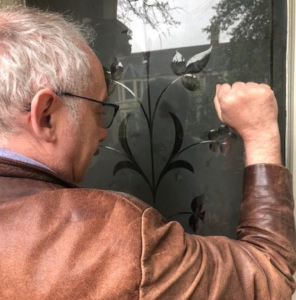
Tomorrow – why a South Wales man who spent 11 years in jail for a murder he did not commit, has highlighted facts emerging about an investigation concerning the conduct of police in the UK’s biggest force before the imprisonment of serial rapist David Carrick, and told The Eye there should be another inquiry into Wales’ largest service, because it was responsible for an incredible number of miscarriages.








